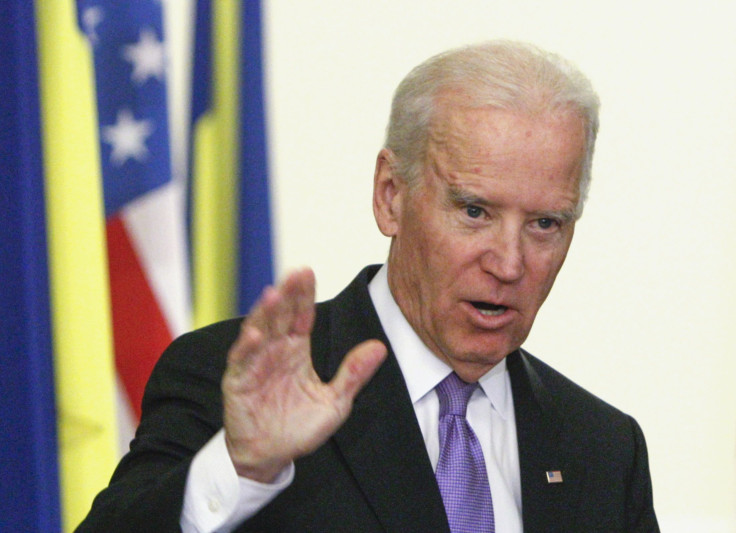Iran Nuclear Talks: Joe Biden Resists Calls For New Sanctions, Gives 'Less Than Even Shot' Of Agreement

U.S. Vice President Joe Biden resisted calls Saturday for new sanctions against Iran but acknowledged it would be difficult to reach a deal to halt the country’s nuclear program. Existing sanctions have delayed Iran’s bid to develop a nuclear arsenal and damaged the Iranian economy, he said.
"It's frozen the program. It's given us a shot for a peaceful solution," Biden said while participating in a Middle East forum at the Brookings Institution, according to Reuters. "I tell you, I think it's a less than even shot but it's a shot, nonetheless."
Renewed sanctions would only hinder attempts to reach a nuclear deal, Biden asserted. “This is not the time to risk a breakdown when we still have a chance at a breakthrough,” he said.
Biden reaffirmed the United States’ military alliance with Israel and vowed Iran would not be allowed to become a nuclear power. “We will not let Iran acquire a nuclear weapon -- period. End of discussion. Not on our watch,” he said.
The United States and fellow nuclear powers China, Russia, Britain, France and Germany have offered to ease economic sanctions if Iran agrees to measures that would disrupt its ability to develop nuclear weapons. Iranian officials insist the country’s nuclear program, which was uncovered 12 years ago, is focused on developing new energy sources.
The six world powers’ one-year deadline for negotiations on Iran’s nuclear program expired last week, prompting calls within Congress for renewed economic action against the Middle Eastern nation. Obama administration officials expressed concern that such action could drive Iranian officials to abandon talks altogether and cause the global community to blame the United States the communications breakdown, the Los Angeles Times reports. President Obama has threatened to veto a bill that would establish new penalties.
The two sides have established a new deadline of March 24 to reach a rough outline on a nuclear agreement, with a finalized plan expected by June. The Senate Foreign Relations Committee has discussed potential sanctions if Iran misses the new deadline. These penalties would be “phased in over a period of time -- calibrated and measured,” a Senate aide said.
Efforts to reach a deal ahead of the original deadline fell apart amid disagreements on a number of key issues. U.S. officials called for Iran to shut down as many as 8,000 of its 10,000 nuclear centrifuges, while infighting between the six nuclear allies disrupted negotiations.
© Copyright IBTimes 2025. All rights reserved.






















